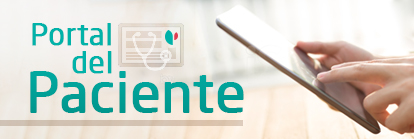Paediatrics
Facilities
Paediatric Intensive Care Unit and Hospitalisation
- Paediatric Beds: 21.
- 3 single rooms (2 of them isolated)
- 7 double rooms
- 4 Paediatric Intensive Care places
Neonatology
- Job design: 14
- 4 intensive care units.
- 10 intermediate and basic care places.
Paediatric Consultation Rooms
- Fifteen consultation rooms to attend to all paediatric sub-specialities.
- Other specialities have their consultation rooms in their respective services.
Day Hospital
- It consists of two adjacent rooms, one for tests and short-term observation of patients on beds, and the other for those who do not require a hospital bed. There is a further consultation room for Diabetes education.
Paediatric Emergencies
A triage area to prioritise patient care, three consultation rooms for patient evaluation, an observation room with two beds and three cots, a room for patients requiring isolation, a critical care room for seriously ill patients requiring intensive care, and a surgery-traumatology room equipped with material for sutures, dressings, bandages and casts.
Techniques and procedures
Paediatric Emergencies
- Oral rehydration, serum therapy, aerosol therapy, administration of intravenous/oral analgesia, administration of corticotherapy, oxygen therapy, peripheral line cannulation, wound suturing, administration of nitrous oxide for painful procedures, bladder catheterisation, gastric lavage, lumbar puncture, non-invasive cardiorespiratory monitoring, initial stabilisation of critically ill patients.
- Hospitalisation
- In addition to those indicated in the emergency service, administration of specific intravenous treatment (antibiotics, analgesia, haematological derivatives), long-term monitoring.
PICU
(in addition to those performed in the emergency department and in the hospital ward):
- Continuous invasive and non-invasive monitoring of critically ill patients (electrocardiographic recording, invasive and non-invasive blood pressure, heart rate, oxygen saturation, exhaled CO2, intracranial pressure, intra-abdominal pressure)
- Support for haemodynamically unstable patients.
- Central venous and arterial catheterisation
- Support for patients with respiratory failure: oxygen therapy, non-invasive ventilation, conventional invasive ventilation, high-frequency ventilation, heliox and nitric oxide ventilation support.
- Nasotracheal and orotracheal intubation.
- Placement of pleural drains.
- Emergency tracheotomy.
- Care and maintenance of scheduled tracheotomy and training for parents.
- Enteral nutrition and parenteral nutrition.
- Sedation and analgesia for inpatients as needed.
- Possibility of patient-controlled analgesia (PCA pump).
- Brain monitoring (BIS, continuous electroencephalogram, continuous intracranial pressure monitoring, transcranial echodoppler).
- Advanced cardiovascular resuscitation.
- Assessment of brain death.
Neonatology
- Invasive and non-invasive cardiorespiratory monitoring.
- Serum therapy, enteral nutrition, parenteral nutrition.
- Central vascular cannulation, pleural drainage, total or partial exchange transfusion.
- Oxygen therapy, invasive and non-invasive mechanical ventilation, orotracheal intubation, administration of nitric oxide.
- Support for haemodynamically unstable patients.
- Phototherapy.
- Administration of intravenous and/or oral medication.
- Outpatient Consultations
- Paediatric Allergy and Pneumology
- Provocation tests for any food, drug or latex.
- Pulmonary function study (basal spirometry and bronchodilation test), plethysmography, pulmonary diffusion test, bronchoprovocation test with methacholine or eucapnic voluntary hyperventilation, ventilatory pattern and peak pressures, exhaled nitric oxide measurement, nasal nitric oxide measurement.
- Skin tests for pneumoallergens.
- Education around asthma and handling inhalation devices
- Determine chlorine in sweat (conductivity with Macroduct system)
- Measure O2 saturation and determine capillary CO2 (gasometry).
- Administer subcutaneous immunotherapy.
- Administer hospital prescription vaccines (MMR in people allergic to eggs, etc.).
- Administer Palivizumab (to susceptible patients in RSV epidemic season)
- Other activities: Collaborate in bronchoscopy (rigid and flexible) with Pneumology, Sleep study: polysomnography, in collaboration with Pneumology, Education for chronic and pneumological patients and their relatives.
Paediatric Cardiology
- Electrocardiograph, Dinamap sphygmomanometer, pulse oximeter, echocardiograph.
- With the participation and collaboration of the Adult Cardiology Service, Holter monitor with telemetry.
- Echocardiography.
Paediatric Endocrinology
- Clonidine test.
- Fasting hypoglycaemia test.
- Insulin hypoglycaemia test.
- Glucagon-propanolol test.
- Glucagon test.
- Growth hormone stimulation with GHRH test.
- LHRH test.
- 1 and 250 mg ACTH test.
- 250 µg ACTH test.
- Oral glucose overload test.
- IV glucose overload test for C-peptide.
- HRT test.
- CRH test.
- Corticosteroid suppression test.
- B-HCG test.
- Pentagastrin-calcium test.
Paediatric Gastroenterology
- Chlorine in sweat (ionotest).
- Monosaccharide absorption test.
- Disaccharide absorption test.
- Exhaled hydrogen test.
- C13 urease test in exhaled air (Endoscopies).
- Peroral jejunal biopsy (Endoscopies).
- Oesophageal pH-metry (Paediatric Surgery).
- Stool: pH and occult blood.
- Serum immunoreactive trypsin.
- Change of nasogastric probe.
- Collect duodenal juice.
- Family education for special nutrition.
- Family education for tube changes, Family education for gastro and enterostomy care.
Paediatric Haematology
- Bone marrow aspiration and puncture.
- Cytology (in collaboration with Haematology and Pathological Anatomy).
- Education for family members with chronic haematological pathology.
- Paediatric Infectious Diseases
- Education for family members with drug addiction (in collaboration with Social Paediatrics).
- Education for families with HBV, HCV and HIV (in collaboration with Social Paediatrics).
- Education for families with children in adoption (in collaboration with Social Paediatrics and Clinical Psychology).
Paediatric Nephrology
- Concentration tests.
- Liquid-free concentration test.
- Concentration test with desmopressin stimulus.
- Renal acidification tests.
- Determination of renal threshold for bicarbonate reabsorption.
- Hyposaline overload test.
- Study of hypomagnesemic tubulopathies.
- Urinary catheterisation.
- Suprapubic puncture.
- Education for relatives of patients with chronic renal failure.
- Ultrasound and abdominal echo-Doppler, SVC, echocystography (in collaboration with Radiodiagnosis).
- Renal function tests such as DMSA and DTPA (in collaboration with Nuclear Medicine).
- Renal biopsies, nephrectomies, obstructive pathology (in collaboration with Urology).
Hospital Universitario Fundación Jiménez Díaz
Avda. Reyes Católicos, 2
28040 Madrid Madrid
© 2026 Quirónsalud - All rights reserved































